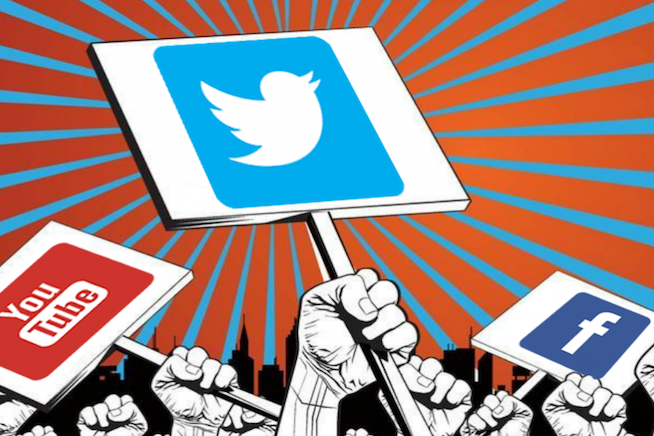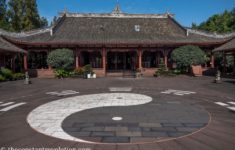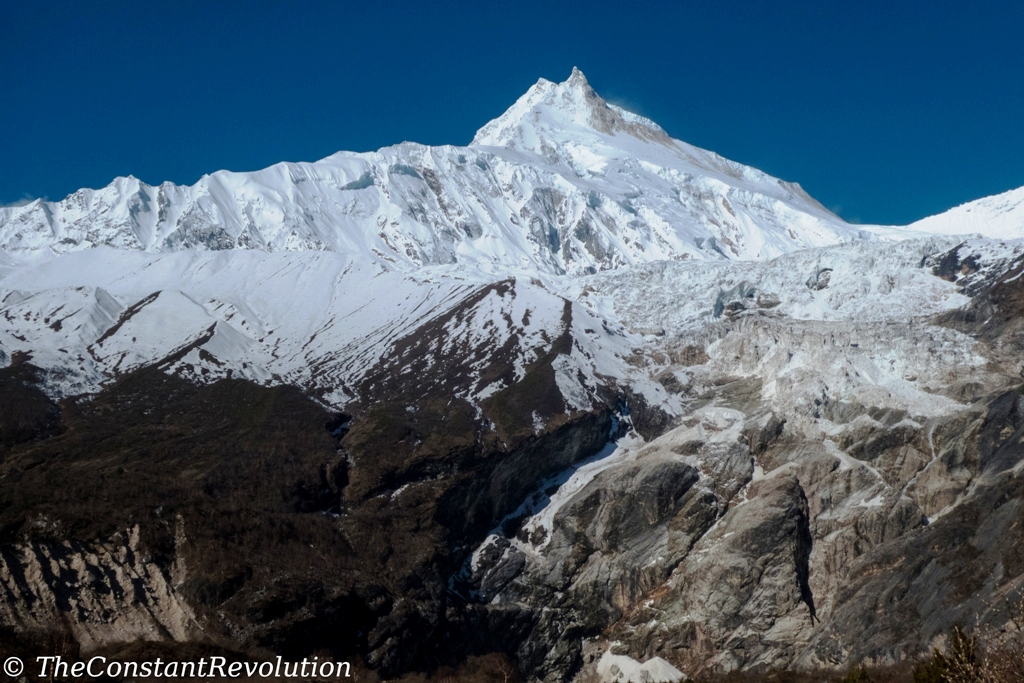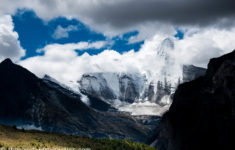I started to write a few words about the terrorist attacks in Sri Lanka in April 2019, I ended up running down the memory lane of two other tragic events that affected me dearly, and the lessons I have learned from it: the shot down of flight MH17 over Ukraine in July 2014, and the Brussels attacks in March 2016.
I was in Sri Lanka during the terrorist attacks that killed over 250 people and injured over 500, on 21 April 2019. I was travelling with my friends from Brussels. I picked them up a couple of days before at Colombo’s airport to go on a road trip together. Only two days before I was walking the same street where the bombs went off.
Scary thought, right? Yet, I found myself living those events and the following days with surprising calmness. I mean, I can still picture the worried expressions of my friends, the phone calls with their families, the constant checking with the embassies, the news, the long night conversations about the need to leave the country or not. In short, fear.
It is legitimate. We were far from home, in a lockdown country which is not new to civil unrest, embassies were evacuating their citizens, the police was founding out more explosives by the day. All good reasons to be scared. Yet, I was incredibly calm, I didn’t feel in danger, I wasn’t even thinking about fleeing the country. Truth to be told, I was a little annoyed by those conversations, those phone calls, those worried expressions on my friends’ faces.
I felt as if the attacks happened thousands of kilometres away, in another world, in another dimension, and perhaps to a certain extent, this is true. Now, after some time, I am looking back at those days and I can’t help but ask myself a few questions. Chiefly, have I become numb to horror?
Scary question indeed, and there might be hundreds of possible answers that have to do with my own personality, and who I am in this specific moment in time. There is no telling why I don’t fear for my life in certain situations, while I do in others. I do believe that fear is actually a healthy feeling if it does not take over and become something else. It is also a very personal one.
But this is not an analysis of the contorted depths of my psyche. It is rather a journey through the memory of tragic events that affected me at different levels, and the lessons I have learned regarding our world and the society we live in.
The ultimate protection
Yes, I was in Sri Lanka. But I didn’t see any blood, nor I heard explosions, screams or silence. I didn’t have to hold a child in tears on my arms, or aid a lady with a gaze lost into nothingness, or give a glass of water to a rickshaw driver sitting on the sidewalk covered with dust. All of this I have seen it on TV, on the internet, like everyone else in the world.
Yes, I was in Sri Lanka. But the few hours of travel that separated me from the places were the bombs went off to the place where I was were like the separation between darkness and light. Sri Lankan people kept opening their doors to us, they welcomed us, smiled at us, fed us, and gave us advice for our journey.
Yes, I was in Sri Lanka. But women kept harvesting tea in the plantations, salesmen selling food on the street, youngsters diving into the murky waters at the feet of constantly flowing waterfalls, while thousands of tourists fled the country. I just didn’t perceive any tension among the locals that were far from the where the explosions happened.
I was in Sri Lanka and from some places in the world I was getting images of explosions, and blood, and death through the screen of my phone. A screen that reduces distances, but in many ways increases them too.
Perhaps that is enough to feel protected. Perhaps that screen is enough to numb our senses to the horrors that happen in the world. We do see this kind of images often after all, for different reasons, and it always feels so immediate and so distant. It always feels so disgusting and at the same time like something that doesn’t concern our lives.
The vicinity probably should have had a different effect on me, for my safety. It just didn’t. I guess fear kicks in other forms for me.
Lack of fear isn’t lack of empathy
To feel no fear doesn’t mean to feel anything. I wasn’t indifferent to those images I was getting through my phone. They saddened and disgusted me like I believe they disgusted many people around the world.
Thinking of those who lost their loved ones in a senseless sparkle of death. The rage and the sense of impotence, then the bitterness at the thought that there is no justice in the world, neither human nor divine. Time cannot be rewind and these acts of pure madness cannot be rectified, nor avenged. There is nothing to be done, nothing to hold onto, only one absurd truth: reality is no more what it used to be. In the end, in a moment of lucid selfishness, I felt lucky for not being in the wrong place at the wrong time.
However, I wasn’t feeling any more saddened or disgusted than when, for example, I see and hear the stories of desperate emigrants dying while trying to cross the Mediterranean sea, or the images we got of the war in Syria, or the crazy shootings in American schools, or any other act of injustice, violence and terrorism in the world.
I was saddened, yes, but unscathed, and untouched by it. Noone I know has been directly involved, no horror has touched me personally. Is that the reason I kept such unrealistic calmness, or even coldness, all the time?
Fear is the goal of terror
It’s the second time I happen to be close to terrorist attacks. The first time was in Brussels, on 22 March 2016. That morning I was walking towards my workplace, just a few hundred metres from Maalbeek metro station where one of the bombs went off. I discovered what happened only at the office.
I remember in that case to be much more scared, and worried, and emotionally in turmoil. It was unexpected, as it always is, but I was alive and the main worry was about the people I love, my friends, many of whom worked in the area. That’s when the fear kicked in. I started to send around messages, check on social media. Luckily, none of the people I know was injured and once I was sure of that, I felt relieved and fear disappeared.
I was still disgusted about the attacks, but it didn’t feel personal any more, while the images of the destruction caused by the bombs just a few hundred metres from my workplace reached me through the media, as usual. It felt far away despite its closeness.
Just like in Sri Lanka I didn’t fear for my life in the aftermath. Many people I know were much more affected than I was, some didn’t get out from their houses for days and days. I kept walking around the city as if nothing as changed.
Here’s the thing: terror can’t win. It doesn’t matter what happens, life should go on as it always does, with no difference whatsoever. That is the only way to counteract the fear terrorism wants to put in society. I strongly believe it, and I behave accordingly, in 2016 when I called Brussels my home as well as in 2019 while travelling in Sri Lanka.
I guess this conviction is so rooted in me that I unconsciously don’t let fear take over me. In a way, I am not numb to terror, I simply don’t accept it. I am not numb to horror, I just don’t let fear take over me.
Yet, it sounds too simple, as if reason alone would always prevail. Some might also argue that it is too easy of a reaction to just keep on behaving as if nothing happened, especially for those who haven’t been affected personally.
When it gets personal
What if a friend of mine was killed, or a component of my family, or just someone I know. That would probably change everything, right? Not necessarily. I know, because I had to live through that too.
A good friend of mine was on the Malaysian Airline Flight 17 that was shot down on 17 July 2014 while flying over Eastern Ukraine. A tragic event with many political implications, and investigations that led to conclusions and responsibilities that never led to justice. A long story, but the most important fact for me is this: my friend is gone and there is nothing to be done about it.
It wasn’t a terrorist attack, but it was just the same type of absurd horror, with the same emotional impact. That feeling of rage and impotence it leaves behind, the injustice, the unexpected shift in reality that nothing can adjust. I still think about it, about my friend, from time to time, about the good times spent together (he was the one to convince me to open a Facebook account, and my first friend on that medium, ha!), but that’s all I can do, that’s all I’ll ever do.
After shedding my tears, I had to accept that life goes on. It’s tough to hear, but it’s the truth. What would be the point of holding a grudge against a whole country, or a whole civilisation for the actions of a few people? What would be the point of letting hatred take over? Where would that lead me, or the world I live in?
The world is what we are
I am part of a generation in Europe, in the so-called Western democracies, that does not know violence, not the warfare type of violence and destruction. That made us naive vis-à-vis violence, and while the screen showed horrors happening all over the world, we would think that it could never happen chez nous.
In recent years we discovered that it can happen. Some probably still think the screen is showing faraway places, but there isn’t any faraway place anymore. The world has become too small. Some realised change is inevitable, and all we can do is manage it as best as possible, and be part of it. Many reacted with irrational fear and misdirected hatred. As I write, it seems that hatred is winning on the liberal spirit of Western democracies, and the majority of their people.
Sometimes I think it would be another good lesson from history, let the hatred take over once again, let people learn the horror by experience. Sometimes I think in order to know what you don’t want, you need to crash into it. I think about this, but I don’t really wish for it to happen.
I have never witnessed horror it with my own eyes, the blood and the tears and the destruction. I have seen it all through the protection of the screen, I have felt my back shiver for the fear of losing my friends, and I know the hole left behind by a sudden change of reality. That was enough for me to understand that I don’t want any horror in the world, that is to say that I don’t want to be part of it in any way.
The three deadly events that played out their sad stories close to me in 2014, 2016 and 2019 thought me many lessons, but one above all: giving in to fear and let it become hatred is the best way to lend a hand to the perpetuation of violence in the world. And the world has a long tragic history of violence. Forgetting this is what it really means to become numb to horror.
The world is what we are, I am sure of it, now more than ever considering the high level of interconnection. One thing is to come across horrors against your will, to witness or to be touched by it. Then you’ll have to deal with it, you’ll have to master the courage to go through it. Another thing altogether is to contribute to the perpetuation of violence.
From the rickshaw driver to the billionaires, in Sri Lanka, in Belgium or on an aeroplane, death doesn’t spare anyone, in death we are all the same. It is how we live our individual lives that make the world what it is, and that can make a difference in what the world is going to become.
I haven’t become numb to horror. I don’t feel that way. Quite the contrary. My calmness in Sri Lanka was dictated by my awareness that life goes on the way I want it to go on, no matter what happens.






